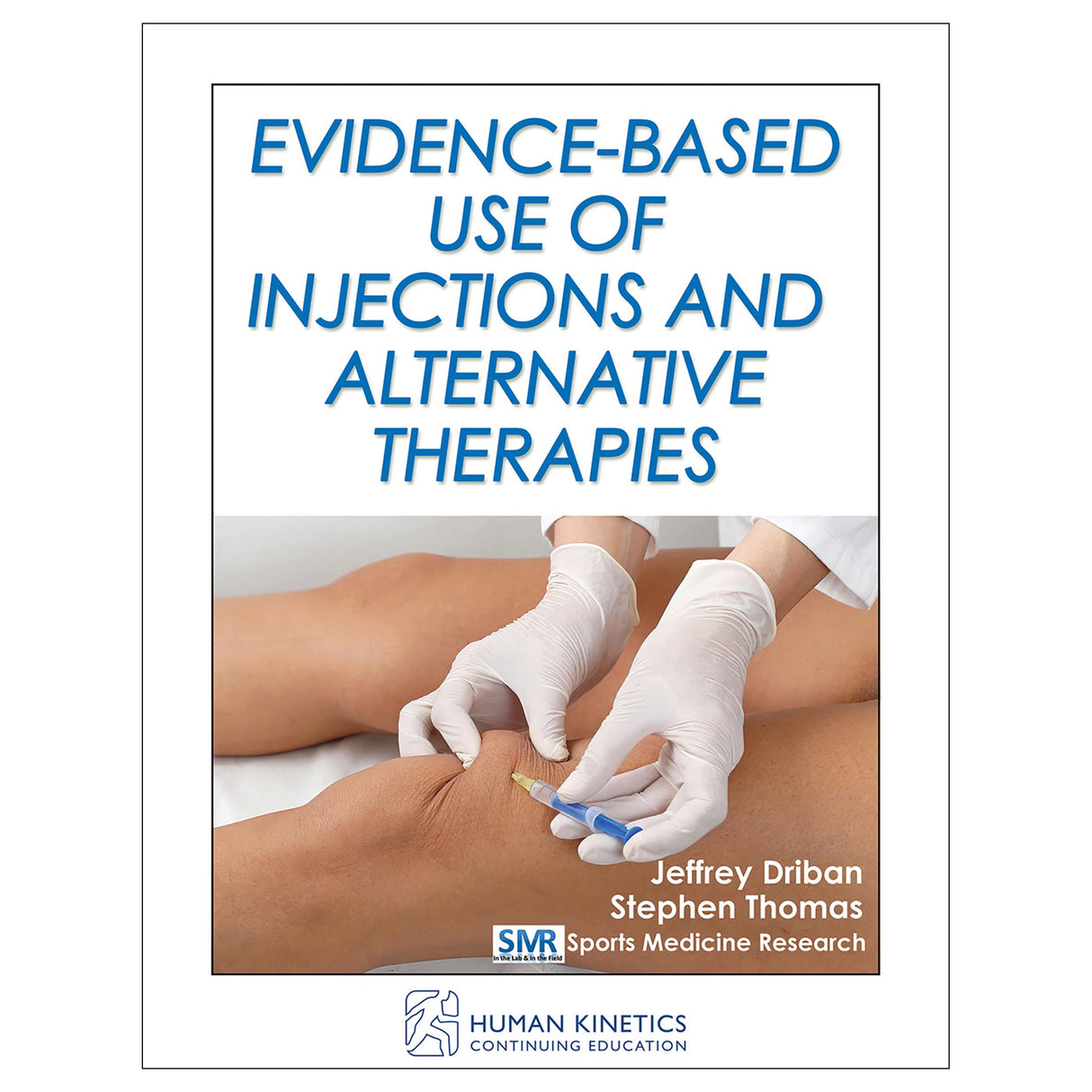Evidence-Based Use of Injections and Alternative Therapies Online CE Course
Author: Jeffrey Driban, Stephen Thomas
$104.95 CAD
Human Kinetics strongly recommends that you complete your exam within the calendar year of your date of purchase to ensure approved credits do not expire for your organization.
- 20 online articles from Sports Medicine Research
- Online continuing education exam
Evidence-Based Use of Injections and Alternative Therapies Online CE Course provides a comprehensive review of research on alternative therapies and injectable medicine to help clinicians recognize when injections can be optimally used to reduce the risk of unnecessary adverse reactions. You’ll find 20 research articles regarding benefits and risks of different types of injections—specifically platelet-rich plasma, corticosteroids, and hyaluronan—for treatment of various musculoskeletal injuries and conditions, demonstrating how athletic trainers and therapists can use existing studies and apply the information to their own practice. Each reading summarizes the research, offers a clinical appraisal, and indicates the clinical relevance of the study.
Evidence-Based Use of Injections and Alternative Therapies Online CE Course supports the initiative in the athletic training profession to integrate the best new research and evidence into clinical decision making, with the goal of improving patient outcomes.
Once you complete the readings and pass the 100-question exam, you can print a certificate for continuing education credits.
Learning Objectives
- Identify patient populations that may be responsive to platelet-rich plasma injections.
- Identify patient populations that may be responsive to corticosteroid injections.
- Identify patient populations that may be responsive to hyaluronan injections.
- Explain to patients the benefits and risks of different types of injections for musculoskeletal conditions.
Audience
Certified athletic trainers and athletic therapists.Article 2: PRP Injections Are Not Effective for Chronic Achilles Tendinopathy
Article 3: Not So Fast With That PRP: Platelet-Rich Plasma for Hamstring Injuries
Article 4: Platelet-Rich Plasma: Is It Beneficial in Shoulder Surgery?
Article 5: PRP Injections for Chronic Rotator Cuff Tendinopathy
Article 6: What Is the Best Treatment Option for Calcific Tendinitis of the Rotator Cuff?
Article 7: What Is the Optimal Dose of Corticosteroids for Adhesive Capsulitis?
Article 8: PRP and Lateral Epicondylitis: The (Re)Search Continues
Article 9: The Questionable Long-Term Effectiveness of Physiotherapy and Corticosteroid Injections for Tennis Elbow
Article 10: PRP Outperforms Corticosteroid Injections for Lateral Epicondylitis
Article 11: Comparing PRP, Glucocorticoid, and Saline Injections for Lateral Epicondylitis
Article 12: PRP for Tendon and Ligament Injuries: Does It Work?
Article 13: A Review of the Efficacy and Safety of Corticosteroid and Other Injections
Article 14: The Benefits of Platelet-Rich Plasma on Fracture Healing
Article 15: PRP or Hyaluronate in the Management of Talar Osteochondral Lesions
Article 16: Do Hyaluronan Injections Improve Outcomes After Microfracture Procedures in the Ankle?
Article 17: Debating Early Viscosupplementation
Article 18: Hyaluronic Acid Versus PRP for Knee Osteoarthritis
Article 19: Not All PRP Preparations Are the Same: A Call for More Systematic Research
Article 20: PRP Preparations: Are You Getting What You Wanted?





